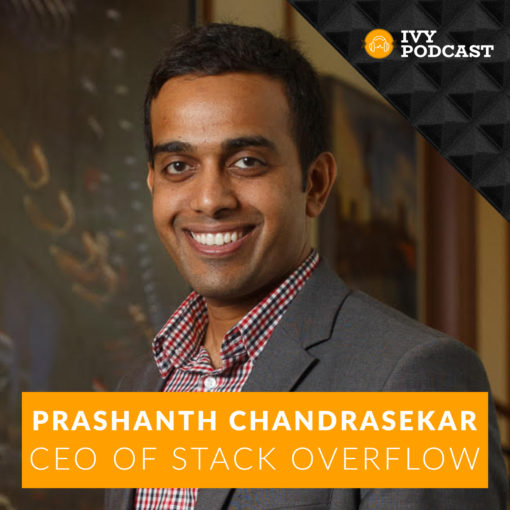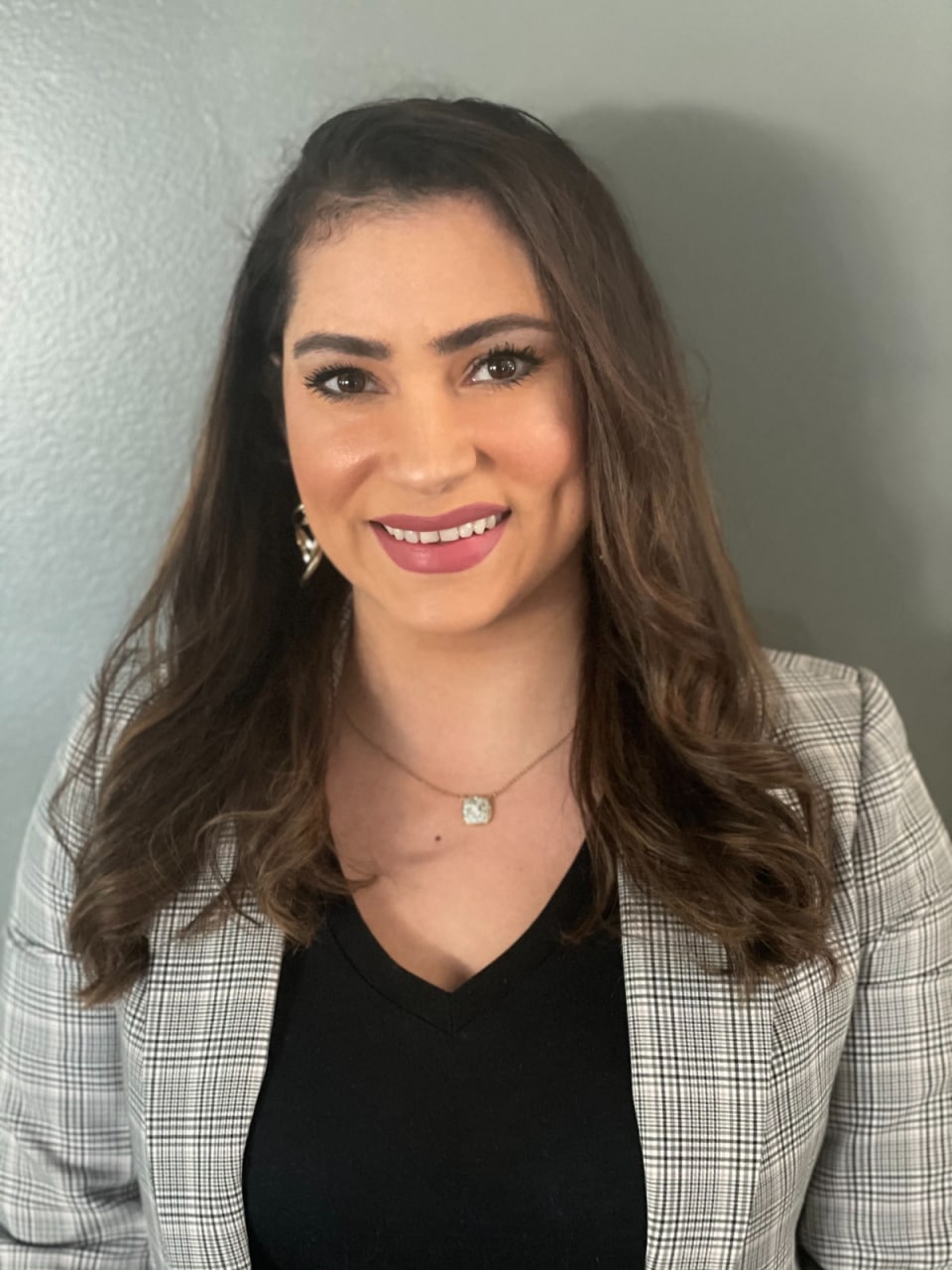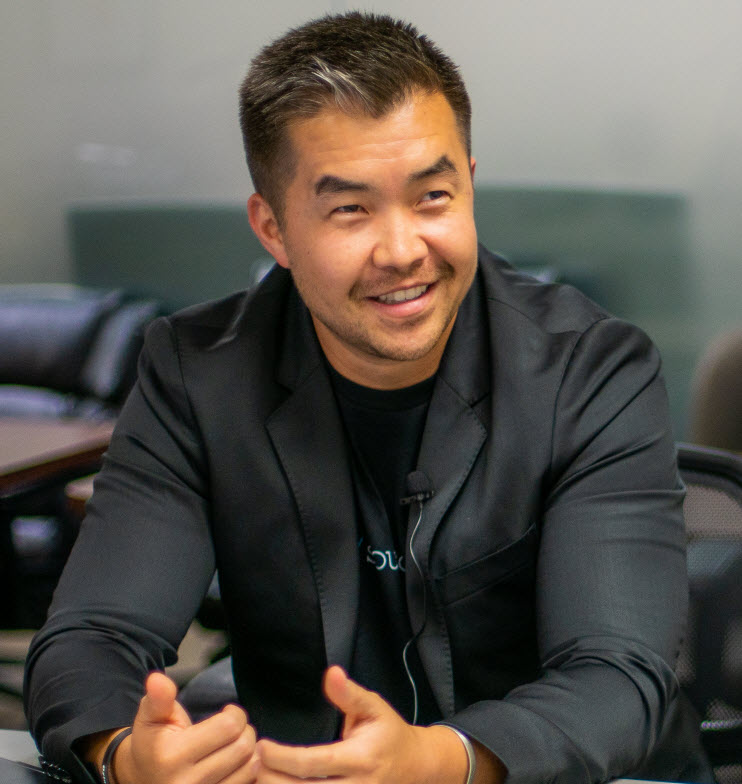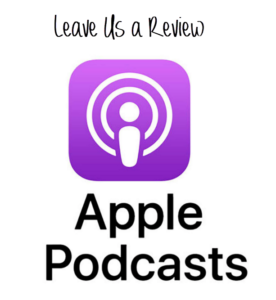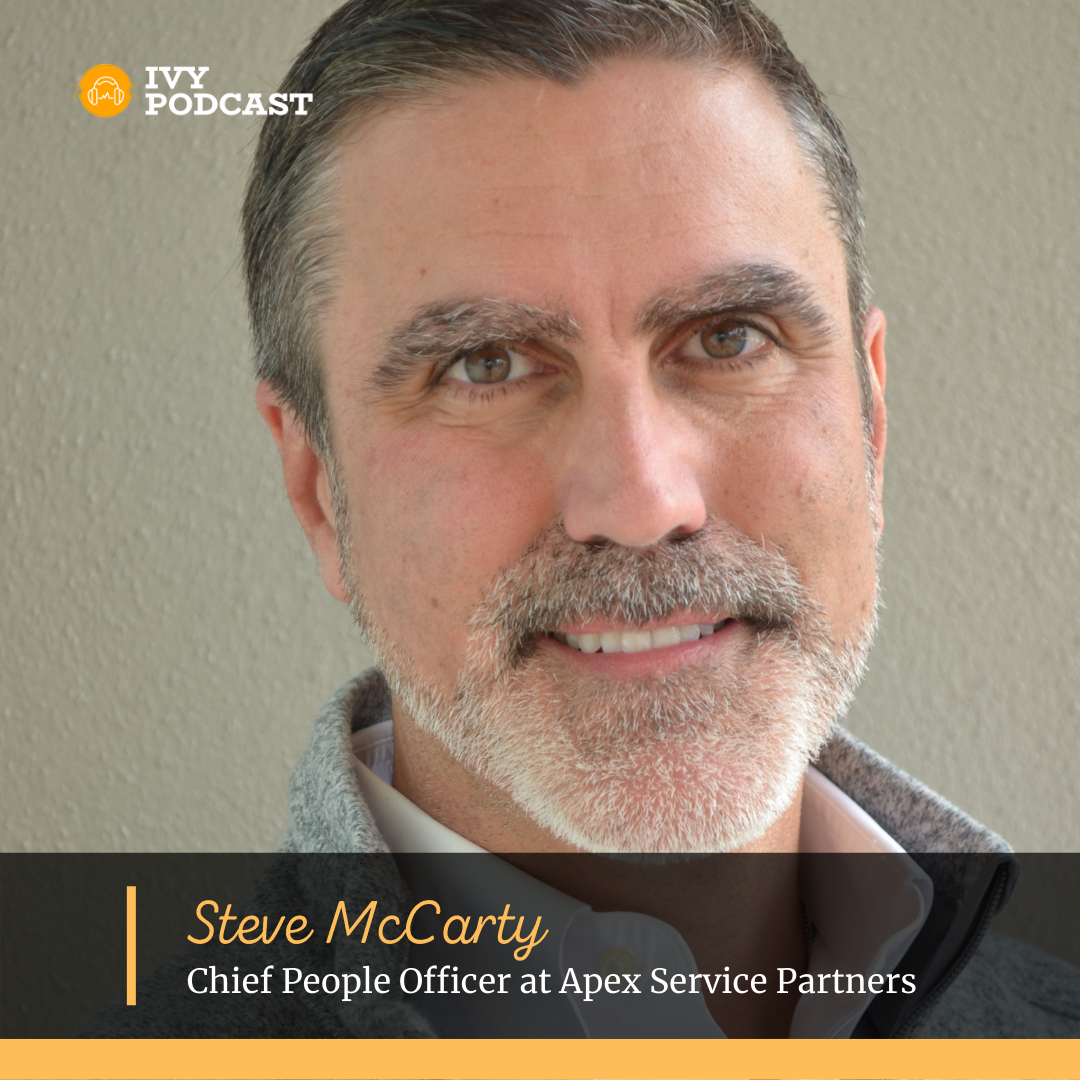
Steven McCarty is a human resources executive who is currently the Chief People Officer for Apex Service Partners, a private equity backed HVAC, plumbing, and electrical services group that partners with dozens of industry leaders in 10 states. Apex has expanded rapidly and is investing significantly to be a world class, people first national platform. Previously, McCarty owned and operated 501HR, LLC, an HR consultancy which “helps small and mid-sized organizations with big company HR.” McCarty was also promoted through a variety of leadership and executive roles with Enterprise Holdings where he served as their global Vice President for Talent Development, their VP of Human Resources in Florida, and as a Corporate HR professional supporting the Midwest.
Episode transcription:
[00:00:00] Steve McCarty: So that's all getting them in the door, right? Once they're in the door, how do you pick the right one? And I have to kind of go back to, I mean, we've implemented paneling, and there's a lot of different opinions out there, but I don't know that there's a lot of research validated. Things around selection and for me, and this is going to sound geeky, but I think it's really relevant for our audience. The employment interview by Schmid and Zimmerman back in like 2004 is the only study I'm aware of, and I'm not a big study guy, but it basically came down to this: most executives do average or poorly at selecting management above. And the best way to do it properly as a panel, you can actually go out, you can search online and you can look at the research, but it really comes down to doing separate interviews is broadly a waste of time, a properly done panel with structured score cards and maybe a proper debrief at the end is actually the way that if you want to increase your hit rate, your batting average, I'm going to hire 10 people this year. [00:01:02] And I don't want to lose five. I want to keep eight or nine or ten. The right way to do it is with a panel and that's actually backed up. [00:01:36] I'm Steven McCarty. I'm the Chief People Officer for Apex Service Partners. We are in realization that acquirers and in the future, I'll say partners with, but acquires companies in the trades, plumbing, electrical HPAC, often overlooked part of American industry. [00:01:56] Jahn Karsybaev: That's exciting, Steven, thanks so much for finding time to join us on the Ivy Podcast today. To dig a little bit deeper into the strategies for the acquisitions and how you guys select the companies and so forth, but before we get into that, tell us a little bit more about yourself and your background, where you come from your career path and where you headed next. [00:02:14] Steve McCarty: Sure. So, had a few jobs, did most of my career with a big Rent-A-Car company enterprise, which started really small at the time. We were kind of pulling trailers on dirt, lots and knocking on doors for business and learning to kind of run and grow a business. And then as the company grew over time, got into human resources, started an HR department, went to the corporate office and helped other people start HR departments that would a lot of the policies and trainings and procedures that the organization has today. And most recently, before this current role, was their head of talent development for the company. At that point, it was, you know, a multi-business, multi-brands country. And most recently, was consulting before starting with Apex. So got back to my roots, working with small and midsize companies. And that's how I got connected into Apex Service Partners. It’s fun helping small businesses be better versions of themselves again. [00:03:08] Jahn Karsybaev: that's exciting. Congrats on all the successes through the career. Right now you are Chief People Officer, you know, there's some misconceptions about the role. Tell us a little bit more about, you know, just the role in general, what falls under your purview? What are some of the things maybe that people don't know about this particular role? What are the major highlights? [00:03:32] Steve McCarty: You know, I kind of almost wonder if the Chief People Officer title is kind of titled wrong. I kind of think of my Chief Executive Officer as the Chief People Officer, and hopefully I'm doing a good job for the people underneath him, but you know, people is kind of the evolution of personnel / HR. And, you know, I mean, you think about HR human resources. Oh, my humans are resources like other assets in the business. It's, you know, fairly, blandly put. No, the people function is meant to be more talent focused, more culturally focused. And that's what I'm responsible for, you know, one side you have classic HR operations. Our people deserve fantastic benefits, fantastic internal employee services, the same way we would add external customer service, but at the same time, the real differentiator is not trucks or trades or even financial capital. It's people. Right. So having the title and the department aligned towards where the true differentiator is people. So really all things employee focused is something that we hopefully support and lead. [00:04:30] Jahn Karsybaev: Well, that makes sense. And you know, that's exciting and I can relate to, you know, what you're talking about. You know, I talked to a lot of executives and one of the kind of prevalent themes is, you know, digital transformation, a lot of transformation initiatives, but what it boils down to at the end of the day, starts with people's transformation that you cannot be successful with transforming your systems, your technology, if you know the people on that button. So I think that makes sense from a standpoint of what you're talking about in terms of the overall role as a Chief People Officer, as, you know, as I interview a lot of entrepreneurs and also executives as well. And one of the things that excite me is to talk about different ideas or trends that from your perspective will be prevalent these days. What are you most passionate about? Whether that's in your industry specific or it's something in general that you currently observe or looking to invest. Share with us any ideas that really excite you that you think will be the next big thing? [00:05:34] Steve McCarty: yeah, sure. So I almost, if I'm allowed to go a bit backwards on you, I almost kind of want to comment on what you were commenting on and the title and the function. Just go back a hundred years. Your cars are no cars, computers no computers, internet no internet, you know, just, what was the common thread between companies that did well and didn't do well because the industry has changed industries. In our lifetimes it's been happening, you know, the differentiation of people and people, leadership has been significant. I think that's the evolution of our function. So it just came to mind as you were speaking before that, you know, sorry to go backwards on you, but to your current question, you know, about the trends of the industry. Oh man, I think I don't want to be so bold as to think that we can do this perfectly, but we really do want to bring respect back to our trades. Like, if you think 20 or 30 years ago to take a longer time horizon, you know, white collar work and blue collar work were more equally respected. Like, you know, many of us had fathers, like my grandfather drove a milk truck. I mean, these were jobs where, you know, hard working men and women literally built America. [00:06:43] And then you see high schools kind of starting to take out some of the trades trading or the Bowtech or stuff like that. If you fast forward to today, people almost overlook, you know, from a consumer perspective and from a business perspective, these wonderful, beautiful, skilled trades that really are the foundation of our country and from a business point of view. [00:07:03] Wow. What multi-billion dollar nationwide industry has tens of thousands of small companies in it. With maybe only a handful of nationwide players or companies becoming nationwide like us. It's an amazing business opportunity where somebody with skills like yours or mine and hopefully make the industry maybe a bit better. Cause they haven't had the benefit of larger scale companies, or you know, more, developed professionals like ours. So I think the trend of the industry is now starting to say. Wow. Maybe we have overlooked this. I think, you know, just some PE firms have noticed it. I think, you know, media is starting to notice it. I think that you're starting to see more press out there about, okay, how many white collar, you know, college graduates, if you will, are in jobs that don't require college degrees. According to my research it is about 17 million. You see research out there about the cost of a degree and what's the return of that. And then you see bias, frankly, stereotyping in a society that shouldn't stereotype at him. Anybody we stereotype work in addition to people and I candidly think that's wrong. You know, the blue collar trade should be not even more respected, but they should be acknowledged for the fantastic careers they are. [00:08:17] And I think those trends about small business, about what really builds America, thinking about what will be here 20 years from now, our skilled trades will be, I don't know that, certain jobs will be, I think there's a lot there to think of with our industry, that both respects the past and evolves towards the future. [00:08:38] Jahn Karsybaev: Oh, absolutely. And that makes sense, you know, from a standpoint of just overall trend, where are we going from education standpoint, from, you know, professional setting. I can definitely relate, especially with us coming out of quote unquote from the pandemic. [00:08:53] I think, you know, it definitely shines a lot more light on that particular aspect of that. So that's pretty cool. So for you, you know, as the Chief People Officer, and also being an executive, this space for quite some time, I'm pretty sure that, you know, innovation is at the forefront is one of the key strategies just overall as an or organizational success. [00:09:14] And I spent a lot of time, you know, Talking about this particular topic on a lot of the podcasts that we host. And as far as strategies or initiatives that really help you as an executive to build and foster that culture of innovation, I know it's extremely loaded question, but from a standpoint of something that stands out, something that you have seen work, you know, day to day, as far as building that type of culture within the organization, share with us any insights from that standpoint. [00:09:46] Steve McCarty: Yeah, I think some of it is new and fun. I think some of it is just classic. Right, you know, I think getting into the classic space and I've seen a number of projects even within our own organizations and the partners and companies that we buy and support. You know, just a couple of days going, we're working on some different things with some compensation plans. I said, well, has anybody, what are people doing this job say, well, we asked them. That's a good point. We should go check. Right? So sometimes as managers, as leaders, we have these different ideas of this innovation and this or that, or we read the periodicals, we listened to your podcast. [00:10:26] So we come up with these things and for a simple, as it is, we forget to get 5 or 10 of our best folks that are actually doing the frontline, whatever job it is, get them in a room, get a pizza and just a whiteboard. What don't you like? What would you change? And even if they hit all the things that you would have picked anyway, it's their idea now, not yours. And I guarantee, it is just about every conversation. You know, our men and women will identify things that we have missed in leadership. Ask is my first thing. I think the second one is organizational design. I mean, our CEO, myself, our CFO, we want to be very intentional in setting this company up in a very decentralized way. I mean, we partner with fantastic companies. In some cases they've been around for decades. They know far more than we ever will, about many, many things. And for us to be able to kind of, I don't know, be like the NFL. You don't have a set of rules, have a set of parameters every so often maybe where the black and white stripes and, you know, kind of call something if it kind of went out a foul or whatever, but for the most part, you know, within certain guidelines, Let our partners play the fantastic game and come up with their ideas and their innovations locally. And then if we're smart and if we're listening and asking, we can go ahead and identify those quicker, and share them more quickly. It's kind of like states' rights versus federal rights. You want everything coming out of one government or is it kind of interesting to see how 15 different States approach their economies? And I would argue for the latter. Absolutely. I think the asking ended the organizational design and the last thing would just be, there are especially the people, HR space, a lot of very interesting things like that's happened in the consumer space predictably with data, and we need to get much better, in our profession of partnering with our CEOs and partnering with our CFOs and being fact-based and metric driven. We generally don't do that well with people in HR and we need to do that better. [00:12:21] Jahn Karsybaev: Right. Absolutely. It's, you know, definitely being that, you know, not, you know, not almost a service provider, but more of a strategic partner, especially when it comes to business decisions. So where people make decisions or whatever, you know, the particular initiative that's in place. I think HR talent acquisition becomes, you know, a critical aspect of that. So that's exciting to hear about what, you know, what are you talking about? And for you guys it seems, you know, correct me if I'm wrong. The growth strategy primarily is through acquisition. Right? You guys acquired a lot of the different companies. [00:12:54] Tell us a little bit about, you know, about that process. What does that look like? How do you guys identify the prospect as you know, to the extent that you can? and more importantly, what I'm curious about is when you go through that acquisition and make that particular company part of the overarching organization, as far as preserving that culture preserving that's, you know, the overall mentality, what are the strategies that really helped be there? [00:13:18] Steve McCarty: So to the first question, it's a great question, by the way. So to the first question, yeah. How do we identify them? I mean, I think most companies do that consistently. Well, I mean, you have some men and women and you asked them to find people in your space and you have certain parameters and we've identified those parameters folks that, you know, we want to work with slash partner with slash buy. I think what's interesting now is, you know, just recently, we have several businesses that we support and partner with a Texas based on those, you know, based on their experiences with us. They are actively referring other people to us. So, you know, HR folks, you know, employee referrals, marketers, we'll talk about consumer referrals. We see it on the business side too. You know, we see people saying they prospected my brand. They've respected my leadership. They respect what I've done well, but then they have these additional things that I didn't have, and that word gets out, man. And it gets out within your industry niche and that's happening to us. So we're really excited about these kinds of referrals that come in, because hopefully it's a sign of respect for the way we treated the previous partners that we've worked with. What was the second part of your question? [00:14:24] Jahn Karsybaev: The second part was around, you know, as you guys go through with the acquisition and, you know, make that company part of the overall organization, as far as embedding that the two different companies and, you know, also preserving the core values, the core culture, what are the different strategies that really help you succeed in that particular situation? [00:14:44] Steve McCarty: I think my CEO screened me with a question, very similar to that. When I got hired, this is back to word design. This is back to leadership. This is back to leadership, not being about itself. Right? So, I mean, how do we preserve the local cultures? First of all, that's very important for us. With the skilled trades these brands have in many cases, been around for years and decades. Right? So how do you add value without destroying what they've done well, and that is to a large degree, our respect for decentralization. We want to build local leaders to be better versions of themselves. So we've seen some things from larger company perspectives or from some other industries that maybe don't exist in most of these companies. So what's the layer in the things that we've seen that could be helpful and not getting in the way of the things that they do well, and there's a lot of intention and that comes from Alex that we literally call our business partners that are running large chunks, like, you know, a state or a certain section, multiple brands, if you will, they're called a regional CEOs very intentionally. It's not title inflation because they are the chief executive officer, their local operation, and we need to support, enhance, but never replaced that role. [00:15:56] Jahn Karsybaev: Right. Absolutely. And, you know, that's, that's pretty interesting because as you know, I'm pretty sure you guys acquire companies of various size, whether that's, you know, the mom and pop shop or, you know, much larger organization than you, I'm pretty sure part of the evaluation strategy is also how to really preserve that, you know, the culture that they have, but also at the same time, make it part of the Apex ecosystem. I think that's pretty interesting how you guys go through that process. So you've been in HR talent acquisition space for quite some time, obviously thought leader in this share with us any insights or anything practical, or maybe even, you know, things to avoid, when it comes to interviewing, when candidates interview with you, give us a glimpse into the interview with Steve. What does that look like? What are you asking? Do you get creative with it? What do you look for in some of the responses? [00:16:49] Steve McCarty: Well, yeah, and it's a great question because you know, many of us had done this for years. I don't know that many people do it well. The matter of fact, I think most people do it somewhere between below average and poorly. So starting with a Kennedy point of view and part of this is Steve pet peeve. And part of this I think is really candidate perspective. You know, candidates, I call it the statement. Like look at when folks were applying with you guys or if they're applying with us or what have you, especially at management and above roles, if there's a cover letter, which there's not always anymore, but if there's a cover letter, I love reading the cover letter and just counting the number of eyes I would like to work for your company, because I have the skills that I can wind up having career growth. And I would like this and I would like that. If I put my marketing cap on and take off my people cap wrong, that's the wrong approach. You know, companies don't have jobs that are open for your needs. Once you do a great job, I'll walk off the face of the planet for you career wise. But ultimately my job is open because I have a business need. I mean, the I statement should be replaced with the use statement, right? And this goes through the cover letter, but it also goes through the interview. I understand that one of your biggest challenges right now is, is selecting leadership. You know, because you are acquiring companies at a very fast rate and then you call them partners. [00:18:06] And your leadership development program is formative right now. But I understand that you have some people like you with a lot of background in this space. And that's really interesting to me, which isn't entirely right. Different conversations than saying I want to grow my career. So flip the I statement as a candidate, flip it 180 degrees. It's not about what your future needs are. The company will care if you selected the right company, but they'll care after you meet their Indeed's. And I'm sorry to put it in such business terms, but it's true. Or the other thing I would go from a candidate perspective, man, is just, you know what, applying for so many jobs, apply for fewer jobs and just apply for the well like no Prosource, no Apex, no, no. The company that you're applying for in lots of detail and you will differentiate on that alone, you'll have far more hits. And waste far less time by just being more thoughtful and targeted less is more, less is more. [00:19:05] Jahn Karsybaev: I love those recommendations. You know, recently I had, you know, one success story where we had interviewed one HR executive from a local healthcare healthcare company. And, you know, she calls me a couple of days ago and she says, Hey, you know, actually just wanted to share this story with you. That's one of the candidates who was interviewing with us at their company for, you know, an executive role apparently, have listened to the episode that we did with her and where she talked a lot about leadership style, the type of culture they have within the organization. And actually that candidate took the time to really kind of research, investigate and do a lot of the homework from that standpoint. And you know, it boils down to also some of the reasons why a lot of the executives participate in forums like this podcast and, you know, being open about their leadership style and the type of culture they have within the organization. Because I think to me, that's the most effective way to relate that versus, you know, just having somebody read an about us section of, you know, of the company on the, on the website, so I thought that was pretty cool. And kinda in the sense, what you also talking about is providing the candidate with an opportunity to interview you as well to make that a conversation to make that, you know, in dialogue versus just, Hey, it's only me interviewing you as a candidate. I think there's, there's a lot of misconceptions from that standpoint. [00:20:31] Steve McCarty: love what you were talking about a hundred percent, man. Yup, absolutely. [00:20:36] Jahn Karsybaev: In terms of, if we look at the current times and you know, what's coming ahead and a lot of. You know, good questions that we get from our audience. Some are early stage career professionals coming out of schools, second year MBAs and so forth, boils down to what are some of the in demand skillsets, you know, these days, that are in demand that will be in demand. So share with us any insights from your perspective, what would that be? What would you recommend kind of, you know, investing as far as, learning or developing skills, curious to get your take on that. [00:21:13] Steve McCarty: Well, I mean, broadly, anything technical, right? I mean, you can, you can put a whole lot into that, but I mean our skilled trades, absolutely. I mean, just look, macroeconomically not enough supply, more than enough demands. I mean, you see that, you know, with a lot of the engineering's a lot of the, you know, the computer, it type of stuff that you guys I'm sure you know, better than anybody. So I think from a technical skill point of view, you don't have to spend very much long, searching on Google to know which professions truly have that supply demand Delta. That is to a candidates advantage. But beyond that, look, if you get an interview, you got the interview because you looked like you had the technical. All right, so let's just assume the technical and technical could be the background, NBA, the experience, whatever it is. [00:22:02] Anytime that you get an interview, somebody thought that you had those basic core skills. Now the argument is going, the decision's going to be made on the intangibles. Right? I'm talking to five folks. They all looked decent with their CV. So now, what am I differentiating on initiative? The I versus you statements of the understanding, you know, the work ethic, you still are going to get back to those same things that were relevant a hundred years ago, and they're going to be relevant a hundred years from now. It's going to be passion, growth, mindsets, you know, initiative, work ethic, those types of things, the ability to work cross departmentally and cross profession, especially increasingly nowadays. And I want to go back to the growth mindset because a lot of professions are gonna outgrow folks that don't continue to grow within those professions and having continuous learning. And whether that be ongoing certifications, going back to school, whatever it is, just examples of continuous learning are critical because otherwise companies are going to outgrow you and are growing too fast. [00:23:04] Jahn Karsybaev: Absolutely. No, I love that. And it goes hand in hand with, you know, technical skills. Yes. They're important. They're in demands, but at the same time, you know, skills evolve. And if you don't match that up also with some of the matching soft skills, you know, some of the things that you had mentioned, the ability to, you know, from emotionally intelligence perspective, the ability to collaborate. I think those are the skills that require continuous development. And that's super important for, you know, in the period actually that we are entering these days. Right. With being a remote workforce, you know, everything has been done virtually. I think that even elevates that particular need for that. So that's great, so as, you know, Chief People Officer, you know, what are the strategies that help you attract the top talent to your organization, or maybe what's not working. What are the things to avoid? Curious to get your take on something that's, you know, has consistently produced great results for you? [00:24:01] Steve McCarty: I mean, how many times? I mean, if I go back in the future and if I go forward in the future, No go back in the past in Florida in the future. how many times have you heard of war for towels, war for this war? For that? You know, I mean, you know, the battle rages, right? So what are the key ingredients to folks who have done better than average? You know, the first one of the reasons I joined Apex was frankly, you know, my CEO and CFO, our CFO said just recently on an all hands call that hiring is the most important thing we do. Have you ever heard another CFO say that, and that's not to say that other things aren't critically important, but he knows that if we get that next controller, right. And the next VP of finance, that next HR director, whatever, everything else underneath that person gets right. So, I guess, you know, the first strategy is just making sure that non talent acquisition, non HR non-people officers are actually engaged with that priority. And I know my boss feels that way and I know our CFO feels that way and that makes the lift that we do in talent and people that much easier. That being an ingredient one ingredient two is don't think like HR, people think like the marketing folks, like our marketing leader, awkward comes from a consumer marketing background at a major company locally. And he's just fantastic. And what he does with consumers, we should do with candidates, know your audience, you know, for us, where's the military, where's the MBAs, which MBAs have we hired in the past? You know, what programs had the military men and women come in the past. How do I customize my message? How do I become a niche market or in recruiting? And there's a lot of intentionality around defining the audience, defining persona, defining the communications, and then building a media plan so that I do less work, but in pools that have greater production. [00:25:51] And that is a great partnership, I think, between people and marketing, And then I think the last ingredient for us as companies [00:26:00] is, you know, a lot of times, frankly, HR recruiters, talent acquisition, we become little fiefdoms and I don't like it. You know, like who's our competitor inside the company. [00:26:09] Nobody. And that could be said for all staff departments, really not kind of put that thought aside and just come back to the people function, specifically the talent acquisition function. I think very strongly that we have multiple recruiting professionals that we should be able to have developed kind of like the centralized org chart we talked about before with our regional CEOs in such a way. So there's an incredible amount of autonomy and leadership and ownership for the local operations, but it also allows you to rank everything. It also allows you to see, you know, who's better at certain things. It allows for that best practice sharing. And frankly, for a lot more accountability, gotta be very careful about having a fiefdom internally. So I think the org design, the marketing partnership, you know, I think those are some of the key things, you know, go and the senior leadership engagement, if you don't have that. [00:26:59] Jahn Karsybaev: Absolutely. No, I love those examples from a sense that it should not be only a siloed function within the organization. We tend to think of just HR or talent acquisition being responsible for that to attract the top talent. I think it's the mindset, you know, not only at the executive level, at every level within the organization to be kind of that on that constant hunt for A-players for winners, for the people that you know will elevate you will make you better. I think it sounds very simple, but oftentimes overlooked strategy when it comes to surrounding yourself with top talent or attracting the top talent to your organization. [00:27:40] Steve McCarty: Well in talking about that top talent, if I could just pile on it, you don't want that. So that's all getting them in the door, right? Once they're in the door, how do you pick the right one? And I have to kind of go back to, I mean, we've implemented paneling and I, and there's a lot of different, there's a lot of different opinions out there, but I don't know that there's a lot of research validated. Things around selection and for me, and this is going to sound geeky, but I think it's really relevant for our audience, the employment interview of validity by Schmid and Zimmerman back in like 2004 is the only study I'm aware of. And I'm not a big study guy, but it basically came down to this: most executives do average or poorly at selecting management above. And the best way to do it properly as a panel, you can actually go out, you can search online and you can look at the, at, at the, at the research, but it really comes down to doing separate interviews is broadly a waste of time, a properly done panel with structured scorecards and maybe a proper debrief at the end is actually the way that if you want to increase your hit rate, your batting average, I'm going to hire 10 people this year. And I don't want to lose five. I want to keep eight or nine or 10 the right way to do it is with a panel and that's actually backed up. So I push everybody towards the panels when possible handles done correctly. [00:28:58] Jahn Karsybaev: Absolutely. And, you know, there's this famous, statistic quote that goes within the lines of, you know, we spend 3% of our time recruiting, interviewing and hiring. And then the other 97% we spent actually fixing our hiring mistakes. So it kind of that goes hand in hand with where you're talking about in terms of really hiring is one thing, but also really making sure that whole retention aspect and the internal growth really becomes the highlight. You know, the focus center. [00:29:28] Steve McCarty: Yeah. We'll never get it right. But our goal is to get it wrong a lot less often. Right. [00:29:34] Jahn Karsybaev: Absolutely simple as that. That's great. Steve, in terms of your personal development, your personal learning, what are your sources of information? What are your sources for learning? What are you reading? What do you follow? Whether that's a blog that you subscribe to or, you know, Twitter, whatever the case may be. Tell, share with us, share that with us. [00:29:54] Steve McCarty: You know, I, I think we have invested in, you know, some kind of executive coaching for our higher level folks, you know, within the organization. So we get some good stuff out of there. Currently I'm reading the characters edge, which talks about the character component of, of leadership. And, you know, we tend to look at it from a competency point of view. Can I do strategic? You know, what's my financial acumen, whatever it is. And I think we forget about the internal character it's written by, Yeah, the guy who ran West point for a little while. So it's, it's a very interesting read that kind of takes the thought in a different direction. I frankly enjoy talking with non HR folks who are working on our analytics, cross section team with our analytics partners, to just frankly, learn more about spaces I don't know about. And, you know, there's a couple of thoughts there. [00:30:44] Jahn Karsybaev: Is there a particular book that you always recommend to others? [00:30:48] Steve McCarty: For HR people? I think there's two. A CIO getting back to the whole, you learn more from people outside of your profession. A CIO several years ago, referred me to how to measure anything by Douglas Hubbard. And frankly, HR people will often say you can't measure this. You can't measure that, or this isn't relevant or that's not relevant. Well, guess what? The book pursuits all that and actually gives you a lot of tools. And then the other one I love. And I've talked about this for a number of years, the more beautiful question you don't even have to read the whole book. I hope the author hears me saying that, but you can kind of get the gist of it from the first few chapters and it really is all about. Framing the question correctly, drives you to a better solution. You know, how to ask better questions for us is so key as candidates or in leadership. We're all points in between focused more on the questions, not the answers. So those are two that I find that I've worked well across our profession in all professions. [00:31:41] Jahn Karsybaev: Thanks for those recommendations that we'll make those notes available in, you know, in the comments section our episode, Steve, can't thank you enough for your time today. Lots of great insights, you know, very short, but very effective conversation. Personally I learned quite a bit, definitely going to stay in touch with you. Perhaps we can do another episode, you know, in the near future and see how much I've changed, how much has transpired. I really appreciate it. [00:32:04] Steve McCarty: Appreciate you bringing your thought leadership to the call, too, and for the great questions and, Yeah, I enjoyed it. Thank you very much. [00:32:14] Jahn Karsybaev: Thank you for listening to the Ivy Podcast. Be sure to subscribe to our RSS feed on IvyPodcast.com and all major podcasting platforms like Spotify and iTunes. As always, if you enjoyed this podcast, please give us a rating on iTunes.
Welcome to Ivy Podcast! On this Executive Leadership Podcast we interview top executives from Fortune 500 with a focus on strategy, innovation, negotiation and everything about leadership.
Our Podcast for Executives features Thought Leaders who share practical insights for effective leadership, continuous innovation and strategy execution.
Ivy Podcast is a rapidly growing Executive Podcast, which covers topics like Hiring and Retention Strategies, Talent Acquisition, Innovation, Digital Transformation and much more.
On this Leadership Podcast, you will find conversations with the most accomplished executives from Fortune 100 companies. We aim to cover a broad range of industries and create a learning platform for the most ambitious and high potential professionals who are looking to learn from the most accomplished Executives on this Business Leadership Podcast.



